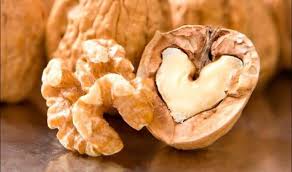
Food against cancer
6. cauliflower
Anti-cancer components: fibre, beta-carotene, vitamin C, ? sulphur glycosides, isothiocyanates.
Cancer prevention effect: cruciferous vegetables such as cauliflower, cabbage, kale, cabbage, cabbage, etc. have fiber, which can reduce the risk of cancer of the digestive system. beta-carotene can help control abnormal cell growth; vitamin C is a high antioxidant, which can regulate the immune system to protect cells; ? Sulfur glycosides and isothiocyanates are effective anti-cancer agents that can turn on tumor suppressor genes, slow down the growth of cancer cells and stimulate cancer cells to self-apoptosis. According to research, eating cauliflower can reduce the incidence of cancer, especially lung, prostate and gastrointestinal-related cancers.
How much to eat: One serving a day, about 100 grams.
How to Eat: Cauliflower is boiled for 5 minutes, which loses 20-30% of the sulfur glycosides; it is recommended to microwave for 3 minutes, stir-fry for 5 minutes, or steam for 20 minutes.
Food for cancer prevention

7. walnuts
Anti-cancer components: ellagic acid, γ-tocopherol, α-linolenic acid, flavonoids, phenolic acid, phytosterols, melatonin, magnesium.
Preventive effect against cancer: ellagic acid is anti-inflammatory and can directly suppress the effect of cancer; γ-tocopherol is a high antioxidant, anti-inflammatory and anti-cancer, regulates cell growth genes; α-linolenic acid is an unsaturated fatty acid, lowers blood pressure and triglycerides. According to research, eating walnuts can improve the body’s antioxidant capacity, reduce DNA damage and reduce the incidence of colon, breast and prostate cancer.
How many to eat: 2~6 pieces per day.
How to eat: depending on the daily intake of fats and oils, if the intake of cooking oil and animal fats is low, the intake of fats and oils from nuts can be increased.
